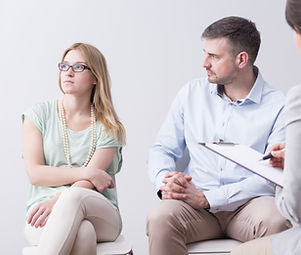
NEIGHBORHOOD & COMMUNITY
Individuals living in family, cohousing and independent arrangements often find differences in lifestyles and activities can create conflict and limit community connection. Accessibility issues may reveal additional needs for accommodations and disputes between roommates and other residents.
HOUSING DISPUTES
Property rights between neighbors, landlords, tenants, and roommates about noise, leases, repairs, relationships and communication
CONSUMERS AND BUSINESS
Credit issues, contractor relationships, business to business, warranties, contracts and payments
COMMUNITY & PUBLIC POLICY
Land use, development and access, relationships/communication, zoning issues and ADA compliance
Where we live, the neighborhood as well as our homes provide comfort and security, a place where we want to relax and enjoy time on our own or with friends and family. For some people, our neighborhoods and homes can also be a large investment of time and money. We want and may depend on good relationships with our neighbors. People often choose where they live because of location to family, schools, work or recreation.
People often get very upset about problems with their neighbours and it is easy to understand why. There is a lot at stake because conflict with a neighbour can make people feel uncomfortable or even unsafe in their own home. Some neighbourhood conflict happens because people see their home in different ways. For example, neighbours living next door to one another might have problems if one wants peace and quiet and the other wants a workshop or a place to party.
Disputes also occur sometimes when people have to share space with their neighbours.
For example, disagreements can occur over noise from dogs or children, fences or trees and shrubs, or over use of hallways, driveways or common areas. And residents of neighborhoods can disagree over use of parks, streets, buildings and businesses.
Alternative dispute resolution can help people address and resolve neighborhood and community differences and disputes. When people feel safe to focus on the problem and work together they are able to find solutions that everyone can live with.
MEDIATION

Where professionally trained mediators help people discuss their concerns and differences in difficult decisions, situations, and relationships. During mediation sessions, people are encouraged to raise issues, express perspectives, share interests, discuss options, and develop their own solutions. As a result of mediation, people are better able to understand and cooperate with each other, and when possible, reach an agreement on how to move forward and resolve their issue(s).
CONFLICT COACHING

Where professionally trained coaches help people understand their conflict, express their concerns, and consider their options in difficult conversations, decisions, and situations. In one-on-one conflict coaching sessions, individuals can gain perspective about their situations and relationships. Conflict coaching is useful to prepare for mediation, circles and conferences, to help people identify their interests, issues and responses.
RESTORATIVE PRACTICES

Where professionally trained facilitators convene people involved by a situation or relationship for meeting together to develop community, identify shared or different needs, plan for changes, or address harm. In these meetings people are encouraged to build connections, share how they are affected by how things are, and explore ways to go forward. During circles and conferences, everyone included has opportunities to express their perspectives, discuss the situation and choose how they want to address their issues to best meet their concerns.
CONTACT US

